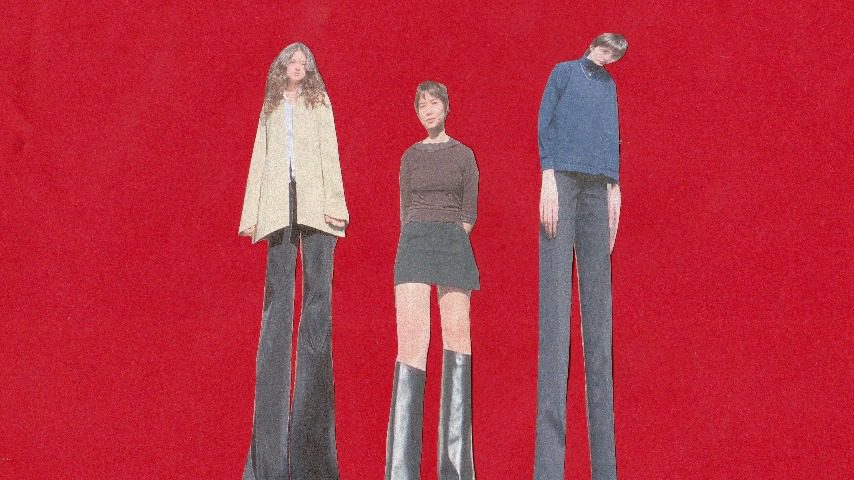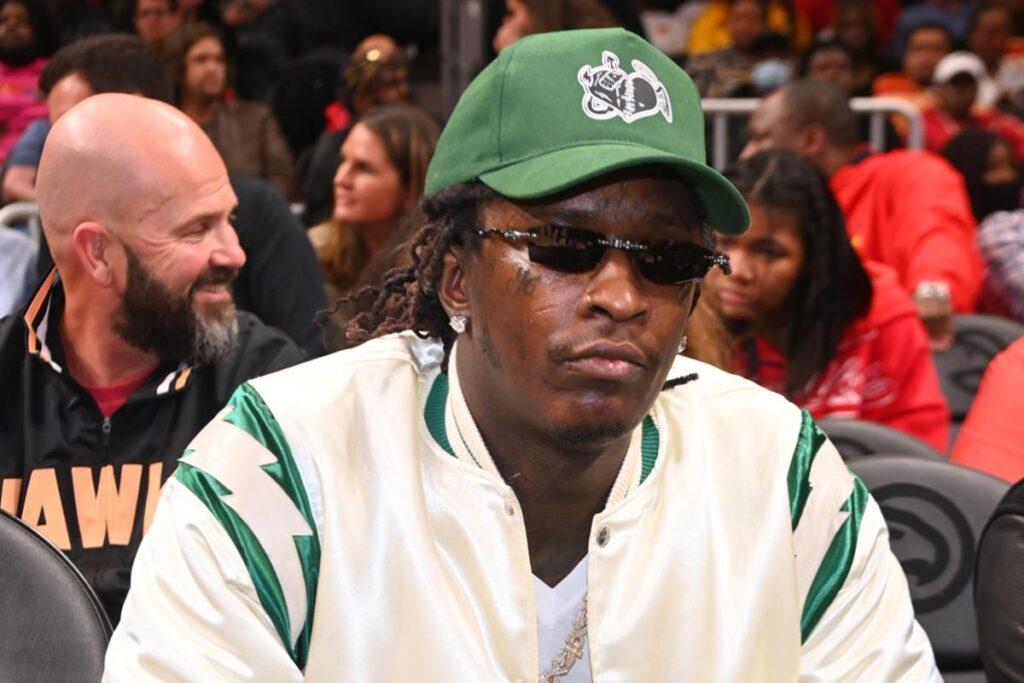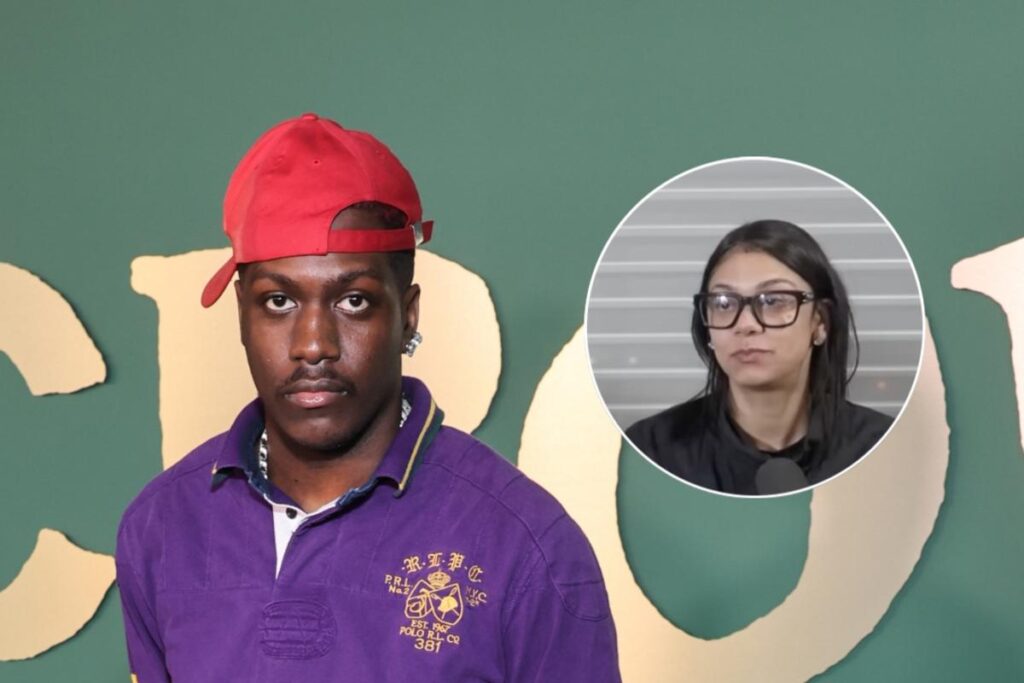Despite being together for a decade, Florist is just now releasing their self-titled. The album, released last week (July 29) via Double Double Whammy, not only encapsulates their graceful folk sensibilities, but also serves as a testament to the powerful love that bonds them as both band members and best friends.
“Making [the album] together was really to celebrate what it means to be in collaboration and in connection in the immediate sense with each other, but also communicating that we are in collaboration with so much,” singer/songwriter/guitarist Emily Sprague says. “That’s basically the meaning of life and in a lot of ways why it’s worth it to keep trying and make meanings out of connections.”
While Florist has always had a tight-knit relationship, their new album arrives after the band took a bit of a hiatus following their sophomore record, If Blue Could Talk, released in 2017. Shortly after, Sprague moved across the country to figure out “how to continue living,” she says, following her mother’s death. While on the West Coast, she released Emily Alone, which was in essence a solo album released under the Florist moniker.
After three years of intense isolation and putting her identity under a microscope in Los Angeles, Sprague knew it was time for her to come home. “At the end of it all, the overwhelming feeling was how much I don’t want to lose the people in my life that I love, and I don’t want to shy away from something because it’s complicated or could be painful,” Sprague reflects.
So Sprague decided she wasn’t going to be alone anymore. Instead, she wanted to open her heart up again.
She reunited with the rest of Florist—Rick Spataro, Jonnie Baker and Felix Walworth—in June 2019. The band rented an old house in the Hudson Valley on the edge of a big hill, with a field and creek behind it. Sprague and Spataro arrived at the house first and chose to set up their gear on the large screened-in porch, where they could be totally immersed in nature.
The result is recordings rife with the warbling of birds, soft wind in the trees and the subtle rustle of leaves. On “June 9th Nighttime,” you can hear the crickets chirping behind their ambient folk, and on “Duet for Guitar and Rain,” a downpour in the background sounds like it’s another instrument in perfect accompaniment with the delicate finger-plucked riff. A gentle reminder of just how connected we are to both each other and the world around us, the willowy synthesizers on “Finally” and the references to rivers, birds and flowers laced throughout the record foster a serene sense of harmony.
“In all scientific and clinical ways, it was the worst idea ever to set up out there. All of our shit had to be taken into music shops,” Baker says. “But it was an impulse. They looked at that porch and saw we could make magic out there, and that this could be part of the story.”
That level of trust in one another is tangible throughout the record. While they work seamlessly together, Florist aren’t trying to be a single organism, but rather an entire ecosystem in which everyone has a special role that only they can fulfill in order for the whole thing to work. Whether it’s the improvised instrumental tracks that were lifted from impromptu jam sessions on the porch or the effortless melding of feathery vocals on “Sci-fi Silence,” there’s this belief in one another that gives the album a sense of comfort only felt when someone sees you so completely.
For a while, the band contemplated how they could capture the pure magic and love that they felt towards one another. It was finally on Florist that all the pieces came together, making it more than deserving of the self-titled designation.
“It opened our eyes to how special this is,” Baker says. “We continued to play music with each other for eight or so years because we enjoyed it, but there was this moment around the record of, ‘Wait, this is deeply special, we are drawn to this, and we need this, and we love each other.’ I can’t describe it in any other way. It felt like all of the sudden there was language around that or an actual conscious understanding.”
You can practically hear the strawberry rhubarb pie Walworth would make for them, the wine nights, and days they spent just hanging out until 5 p.m. when they would finally decide to start recording. Their friendship is intrinsic to the record and accounts for the vulnerability evident not only in admissions like, “You’re not what I have but what I love,” but also in the minimal, yet achingly meaningful instrumentation.
“A lot of it is about people in your life and the ways in which it’s worth it to have people in your life versus not, because maybe that seems easier. It’s about finding the strength and power in reconnecting with your home and your family when that feels painful, but coming out the other side of it,” Sprague says.
While it can be scary to let people in and the fear of loss always looms, over 19 tracks, Florist proves that loving each other is the only way to make it through this world—that you can do it alone and keep yourself out of harm’s way, or you can experience the kind of unfaltering love Sprague finds in “Red Bird Pt. 2 (Morning),” when she sings, “She’s in the birdsong, she won’t be gone.”
Samantha Sullivan is a Paste Music intern and writer based in Philadelphia. She can be reached on Instagram @fangirlpurgatory.



